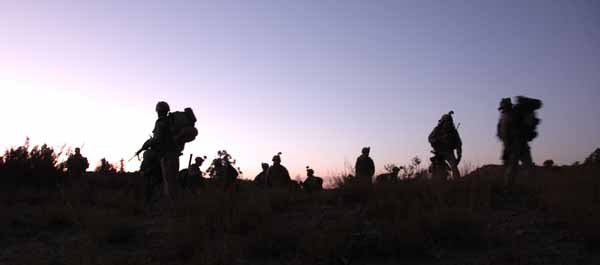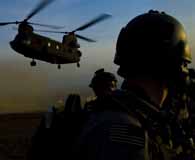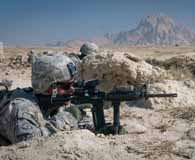Memorial Day 2011: The Anguish of an Unpredictable War

Another Memorial Day is upon us and it once again serves to remind us of the dedication and sacrifices made by the men and women of our armed forces. It is also a time for reflection and to honor them for their service.
Another year has passed in Afghanistan and we are no closer to a solution than ever in a conflict that has lasted more than twice as long as World War II, and which has no discernible end in sight. If, as President Obama has decreed, we pull out the bulk of our forces by 2014 it will mean a minimum of thirteen-years of war – a war with no demonstrable end game or even an agreed upon strategy.
{default}Exactly what that sacrifice is for is an open question. In Bob Woodward’s revealing book, Obama’s Wars, the lack of accord in the highest levels of the U.S. government is made starkly clear. In March 2009, the President declared that the mission in Afghanistan was to “disrupt, dismantle and defeat al Qaeda.” Yet, in the Strategic Implementation Plan that soon followed, CENTCOM and the Pentagon opted for a strategy that defined the mission in Afghanistan of defeating the Taliban, later amended by Gen. Petraeus to containment and denying them access to lines of communication and key population centers.
In the time that has passed since then U.S. troop levels in Afghanistan have risen and now exceed 100,000, President Karzai has been re-elected after a scandal plagued and rigged election, and corruption in Kabul and elsewhere in Afghanistan remains rampant. Secretary of Defense Robert Gates has said privately of Karzai’s government: “This group is way beyond the pale in terms of corruption.” The conditions for “victory” – an Afghanistan capable of defending itself – simply does not now exist and are likely never to occur.
For several years the number of al Qaeda operating in Afghanistan is thought to be not much more than a hundred; most remain in relative sanctuary in Pakistan. With the advent of summer, combat in Afghanistan is expected to reach new levels as the Taliban emerge in force from their self-imposed winter hiatus.
Sometime this summer an estimated 10,000 U.S. troops are expected to be sent home, almost none of them combat troops.
Unlike Vietnam, which eventually outraged the American public and led to large protests and riots, Americans in 2011 are less vocal but nevertheless just as weary of a war that has no end in sight. With the death of bin Laden and al Qaeda thought to be in disarray, the war – at least in the public mind – seems to have lost a good deal of its reason for being.
 An example of the enigma the war has become occurred during a presidential strategy review in September 2009: “The U.S. was in the throes of deciding whether to send more troops into the Afghanistan War, yet the safety of the nation hinged on Pakistan.”
An example of the enigma the war has become occurred during a presidential strategy review in September 2009: “The U.S. was in the throes of deciding whether to send more troops into the Afghanistan War, yet the safety of the nation hinged on Pakistan.”
What is far more certain is that Pakistan is a tinderbox waiting to implode. A democracy in name only but in reality a nation controlled by the Army and held together by the slenderest of threads, Pakistan’s border regions are lawless and under the thumb of tribal chiefs, many of who either support terrorism or actively engage in it.
One of the many dismaying aspects of our frayed relationship with Pakistan is that a significant portion of the funds given by the United States in the form of aid is actually used to fund and support the Taliban and possibly al Qaeda.
Pakistan is the unquestionably the most dangerously unstable nation on earth. With its storehouse of nuclear weapons, its paranoia and history of warfare with India over Kashmir, its fragile government dominated by the Pakistani military, and the fact that it is a safe haven for both the Taliban and al Qaeda, Pakistan is a dysfunctional, ticking time bomb.
A sign of just how bad our relationship with Pakistan has become, particularly since the killing of bin Laden, is the likelihood that some element of the Directorate for Inter-Services Intelligence (the notorious ISI) or the military had to have known of his presence in their own backyard since 2005. The deterioration of our relations has been manifested by the recent exchange of not so friendly fire between the Pakistani Army and two NATO helicopters in North Waziristan, and by the usual threat (sometimes carried out) of denying access through the Khyber Pass to NATO re-supply convoys.
Another of the ironies of the war that the American public does not understand and our leadership has trouble grappling with concerns the conflicting interests of Afghanistan and Pakistan. Such is the quagmire we find ourselves involved in that Karzai favors larger U.S. and NATO forces to protect Afghanistan, while Pakistan believes a stronger Afghan government would align itself with its adversary, India and has opposed it.
A well-known Pakistani opinion writer has recently been quoted as saying: “If we didn’t know [bin Laden was in Abbottabad], we are a failed state; if we did know, we are a rogue state.”
It also raises the troubling question of our purpose in fighting a long war in Afghanistan that history tells us will not end favorably. If the principal threat to the United States remains al Qaeda, which has sanctuary in Pakistan, and the Taliban pose no external threat to the United States, the question then becomes: What is to be gained by continuing a long, drawn out war in Afghanistan?
The recent William E. Colby Military Writers’ Symposium held at Norwich University addressed the subject of Afghanistan. One of the distinguished panelists pointed out that of Afghanistan’s thirty-four provinces only two are presently deemed safe and secure.
Moreover, should the Karzai government fall whenever we depart – as it surely will, given how corrupt and deeply detested it is among ordinary Afghans – there is no evidence to suggest the Taliban will take control of the entire country, just as they failed to do so when they ruled Afghanistan prior to being ousted in 2001. The real powers in Afghanistan, the warlords, will settle that question.
 The United States has quietly admitted that it cannot possibly “win” in Afghanistan through military means alone, and that some sort of negotiated agreement with the Taliban must at some point occur. The great, unanswered question is whether or not the Taliban will do so or simply keep on fighting until (like Vietnam) a public outcry and war weariness cause us to leave.
The United States has quietly admitted that it cannot possibly “win” in Afghanistan through military means alone, and that some sort of negotiated agreement with the Taliban must at some point occur. The great, unanswered question is whether or not the Taliban will do so or simply keep on fighting until (like Vietnam) a public outcry and war weariness cause us to leave.
While our leaders continue to search for a solution in what is surely the foggiest of wars, what is abundantly clear is that the stress on our military of repeated deployments has grown acute and simply cannot continue indefinitely without exacting an intolerable price.
A recent study by the National World War II Museum in New Orleans has revealed that four of five Americans do not understand the real meaning of Memorial Day. Which is all the more reason for us as a nation to stop our barbeques and our parties at 3:00 PM on this Memorial Day and take a few minutes to remember and to honor our fallen and to thank those that have and are continuing to give so much, and are each every day in harm’s way.
And, before too many more American flags are placed on the gravestones of the newly fallen on other Memorial Days, it is time to start solving this dilemma.
Reflecting on the Boer War and Britain’s mistakes more than a century ago, Winston Churchill wrote prophetically in 1930 a warning ignored by more than one modern statesman:
“Let us learn our lessons. Never, never, never believe any war will be smooth or easy, or that anyone who embarks on the strange voyage can measure the tides and hurricanes he will encounter. The Statesman who yields to war fever must realise that once the signal is given, he is no longer the master of policy but the slave of unforeseeable and uncontrollable events.”

